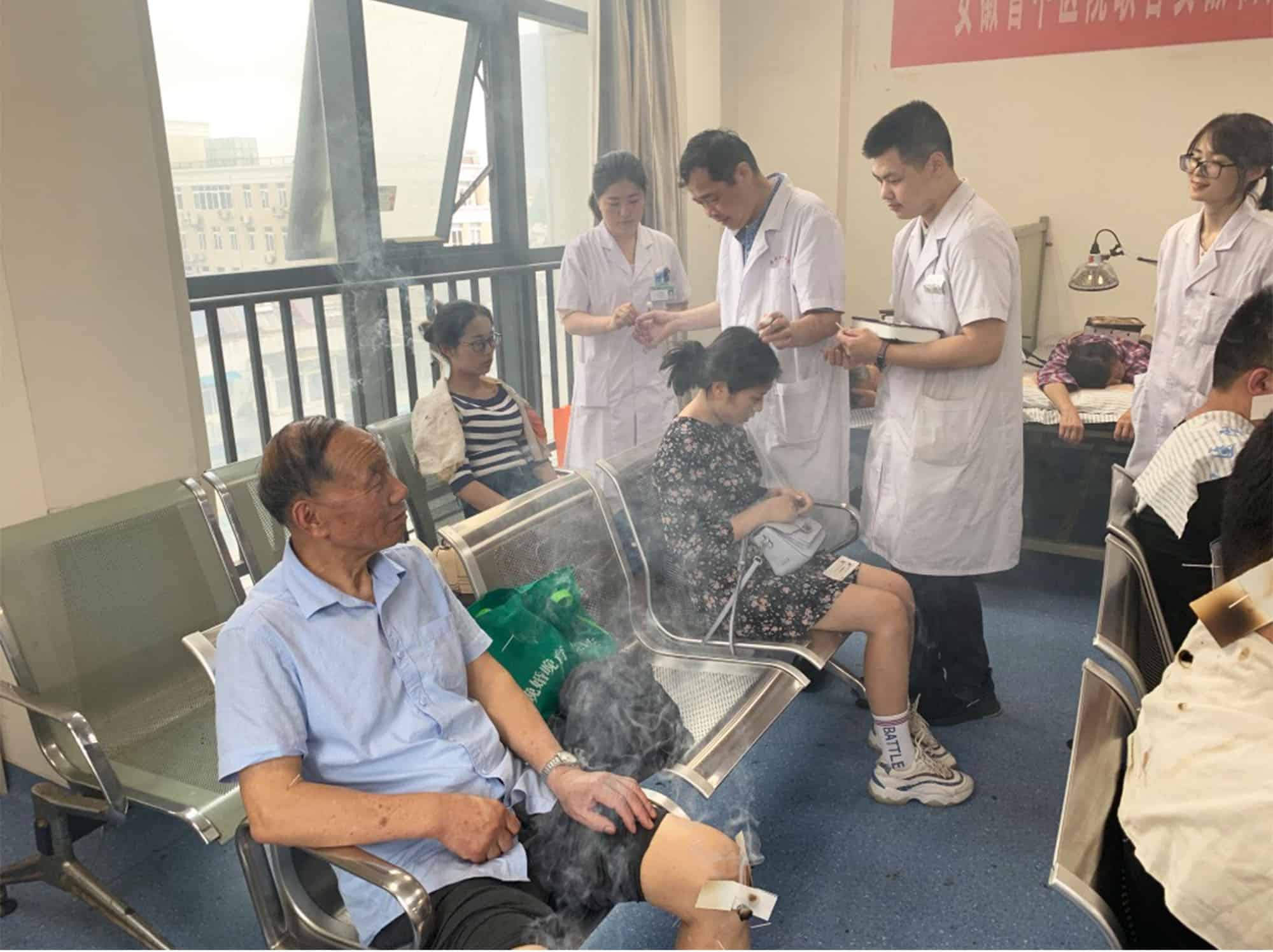The findings from these studies suggest that acupuncture could play a significant role in the treatment of depression and anxiety. The papers included here show acupuncture consistently affecting significant improvement in these conditions. Fortunately for research-purposes, a number of internationally recognized observer-rating scales for anxiety and depression have been created, which are used in both western and eastern trials to defend inclusion criteria and to assess progress.
Depression, Anxiety, and Acupuncture

Patients waiting to receive acupuncture
OBJECTIVE:
The aim of this study was to evaluate the evidence for the efficacy of acupuncture in the treatment of anxiety and anxiety disorders by a systematic review of the relevant research.
METHODS: Researchers searched major biomedical databases (MEDLINE, EMBASE, CINAHL, PsycINFO, Cochrane Library) from February to July 2004. They also explored specialist complementary medicine databases and sought unpublished research. No language barriers applied; translations were secured when needed. Experts appraised study methodologies and gathered clinical commentaries for studies with clinical outcomes.
RESULTS:
Twelve controlled trials were located, of which 10 were randomized controlled trials (RCTs).Firstly, four RCTs examined acupuncture for generalized anxiety disorder or anxiety neurosis, while six targeted perioperative anxiety. However, researchers found no studies on acupuncture for panic disorder, phobias, or obsessive-compulsive disorder. Moreover, in generalized anxiety disorder or anxiety neurosis, interpreting study findings remains difficult due to diverse comparison interventions. Additionally, all trials reported positive outcomes, yet the reports often omitted key methodological details. In contrast, studies on perioperative anxiety generally provided clearer reporting. Consequently, initial evidence suggests acupuncture, particularly auricular acupuncture, outperforms sham acupuncture and may match drug therapy’s effectiveness in this context.
Researchers based results on subjective measures and could not ensure blinding.
CONCLUSION:
Resources
1- Acupuncture for anxiety and anxiety disorders–a systematic literature review.
Pilkington K, Kirkwood G, Rampes H, Cummings M, Richardson J.
School of Integrated Health, University of Westminster, London, UK. [email protected]